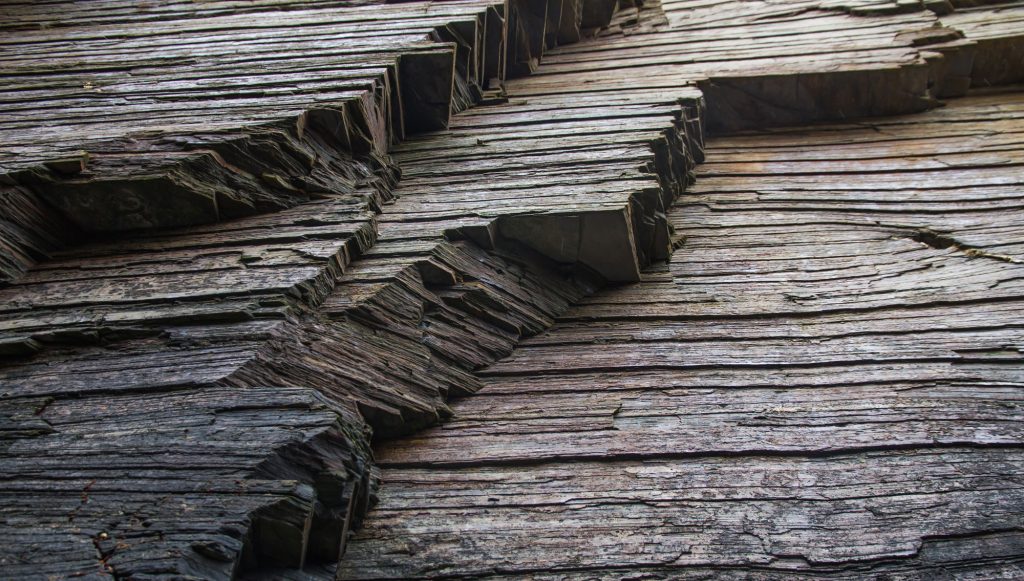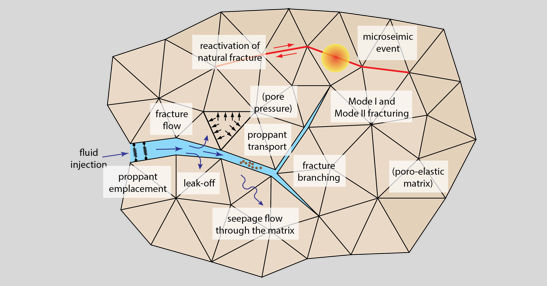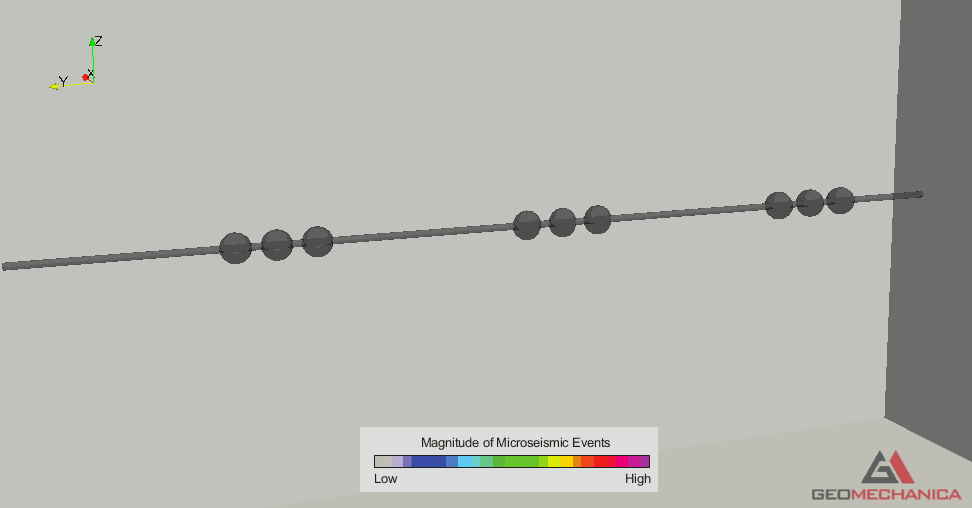THE CHALLENGE
- Hydraulic fracturing design generally addressed with simplistic models tempered by local experience.
- Interactions between injected and existing fluids, in-situ and induced rock mass stresses, newly-created fractures, and natural discontinuities neglected.
- Failure to predict reservoir performance in response to changes in geomechanical conditions.
- Treatment and recovery inefficiencies, loss of wells, and lower return on investment.


THE SOLUTION
- Irazu is equipped with novel modelling capabilities for the stimulation and production of unconventional reservoirs:
- fully-coupled, hydro-mechanical solver including proppant transport and emplacement processes;
- incorporation of discontinuity surfaces and heterogeneities; and
- a fracture model accounting for tensile, shear, and mixed failure modes.
- Irazu enables accurate computation of stresses, strains, and fracture without minimal simplifying assumptions regarding fracture shape and growth trajectory.
THE RESULTS
- Optimize hydrocarbon extraction operations by numerically experimenting with injection rates, wellbore spacing, and fluid properties.
- Reduce drilling and production costs by predicting and optimizing the stimulation process.
- Evaluate the effectiveness of new stimulation methodologies and techniques, including the analysis of completion strategy, well spacing, and stress shadow effects.
- Increase safety by assessing hazards such as caprock integrity, wellbore damage, induced seismicity, and groundwater contamination.
